I used to think that doubts were incompatible with religious faith. If you really believed, you wouldn’t have any doubts. Over the years I’ve come to learn that doubts are not only compatible with faith, they can be good for our faith. Let me explain.
I begin with the basic premise that faith in God is not easy. I learned this even as a child. In catechism class I was taught that God loved me. I assumed this meant God wouldn’t let bad things happen to me. But then my cat was hit by a car and died. Far worse yet, a little boy in my third grade class was killed by a drunk driver as he was riding his bike down the road on a Saturday afternoon. How could a loving God allow such an awful thing to happen? These experiences in life (and many others) soon taught me that faith in God is not easy. Periodic doubt affirms faith’s difficulty.
In addition, faith is not a once-and-for-ever thing. Just because we have faith today doesn’t mean our faith is 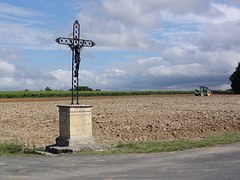 complete or finished. No, faith is a journey just as life is a journey. With new experiences come new challenges to our faith. Doubt acknowledges those challenges. Doubt doesn’t necessarily mean we’re losing our faith. It means our faith is being given the opportunity to grow beyond were it is. The faith we had as a 7-year-old will not suffice for us when we’re 13 or 21 or 37 or 52 or 73. I like what Thomas McCarthy wrote about faith. He said that faith is “not a destination one arrives at, but a gift unwrapped by fits and starts.”
complete or finished. No, faith is a journey just as life is a journey. With new experiences come new challenges to our faith. Doubt acknowledges those challenges. Doubt doesn’t necessarily mean we’re losing our faith. It means our faith is being given the opportunity to grow beyond were it is. The faith we had as a 7-year-old will not suffice for us when we’re 13 or 21 or 37 or 52 or 73. I like what Thomas McCarthy wrote about faith. He said that faith is “not a destination one arrives at, but a gift unwrapped by fits and starts.”
Another reason doubt is compatible with faith was explained by the great Southern and Catholic writer Flannery O’Connor. She suffered from the painful and debilitating illness of lupus before there were medications to ease the pain and slow the progress of the disease. She died in 1964 at age 39. O’Connor said, “You arrive at enough certainty to make your way, but it is making it in the darkness. Don’t expect faith to clear things up for you. Faith is trust, not certainty.” Faith, then, always implies a certain amount of darkness, of not knowing for sure, of doubt. In fact, Anne Lamott, a contemporary American writer, went so far as to say this: “The opposite of faith is not doubt; it is certainty.”
 Father Richard Rohr gives us this interesting description of faith. It seems like an appropriate one as the baseball season begins here in the U.S. He says faith is like living between first and second base “where you’re not sure you’ll make it to second. You’ve let go of one thing and haven’t yet latched onto another. Most of us choose the security of first base.” Then he adds, “Yet faith happens in the in-betweens, the interruptions, the thresholds.” If you prefer a different image of faith, here’s another from the world of the circus: “Faith is what helps us live between the trapezes.”
Father Richard Rohr gives us this interesting description of faith. It seems like an appropriate one as the baseball season begins here in the U.S. He says faith is like living between first and second base “where you’re not sure you’ll make it to second. You’ve let go of one thing and haven’t yet latched onto another. Most of us choose the security of first base.” Then he adds, “Yet faith happens in the in-betweens, the interruptions, the thresholds.” If you prefer a different image of faith, here’s another from the world of the circus: “Faith is what helps us live between the trapezes.”
Faith ultimately is trust in God. In God. And who is this person we call God? God is the creator of the universe with its billions and trillions and zillions of stars! How big is the universe? If earth were the size of a pea, our nearest star would be 10,000 miles away! God is the creator of every single atom that makes up the world as we know it. How small is an atom? If a half a million of them lined up shoulder to shoulder they could hide behind a single human hair! This is the God we have faith in. And sooner or later we realize this God does not conform to our expectations or to our control.
At the same time, we Christians believe that this same God became incarnate on our planet 2,000 years ago and breathed our air and drank our water and loved and worried and taught and laughed and cried. This Jesus taught us that God loves us inexplicably, irrationally, unconditionally. He taught us to trust in God, in Abba, even amid the profound uncertainty and impenetrable darkness of pain and sorrow and death.
and loved and worried and taught and laughed and cried. This Jesus taught us that God loves us inexplicably, irrationally, unconditionally. He taught us to trust in God, in Abba, even amid the profound uncertainty and impenetrable darkness of pain and sorrow and death.
So, let us look at Jesus with whatever faith we have today. As theologian Richard Neuhaus said, and “know that your worry about your lack of faith is itself a sign of faith.” Look at Jesus. And keep looking. Call on Jesus. And keep calling. Come to Jesus. And keep coming.
Here’s a simple and beautiful song by Chris Rice called “Come to Jesus.”
Does anything in this reflection resonate with your experience of faith and doubt?
Did any words of the song speak to you today?
PS: A BIG thank you for your prayers for the Women’s Spirituality Day last Saturday in Springfield, Massachusetts. We had 400 women participate! There was a lively and faith-filled spirit to the whole day. I really enjoyed myself and loved meeting so many women individually too. Thank you, Sister Cathy, for inviting me to be a part of such a beautiful day!
And I want to welcome all the new readers to my blog–from the women’s day in Springfield as well as from the publication called Living Faith. It’s a pleasure having you as part of the “sunflower community.”

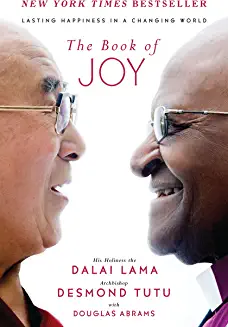
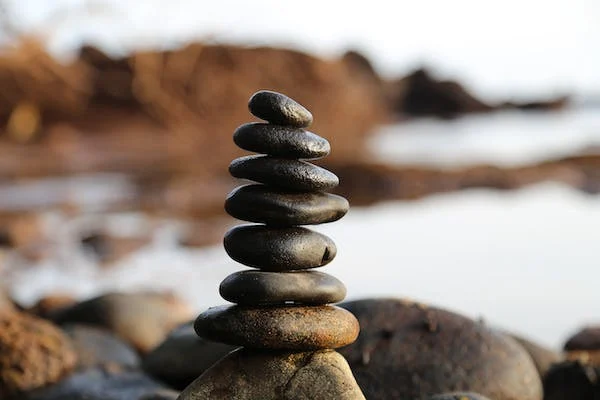
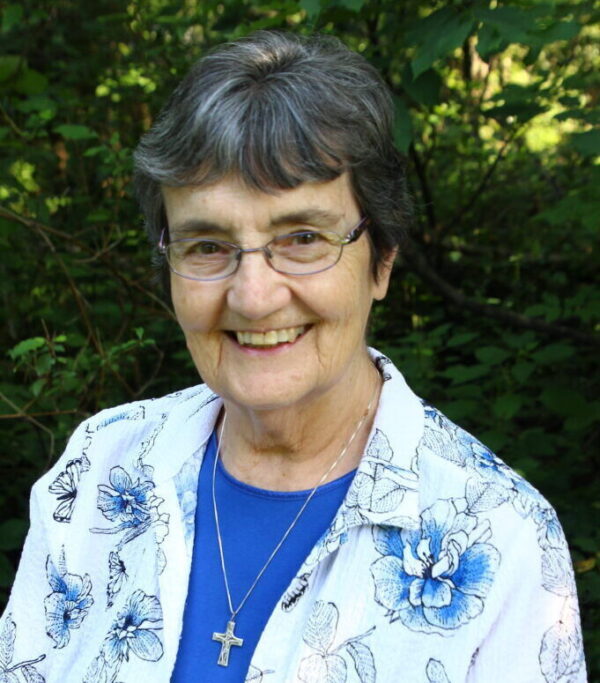

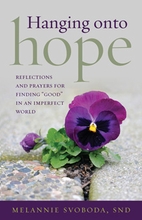

11 Responses
I have had questions about a few things that seem to make sense to me and others but not the Church. I am a 75 year old male. One of the top questions was preventing a pregnancy by use of devices or pills. Seems like the answer is to try our best by following the calendar or abstaining from sex.
Another item has to do with what Jesus spoke about Elijah and St. John the Baptist. The answer is that we are misunderstanding what Jesus meant. Jesus is very smart, he knows what he said.
The bottom line seems to be is accept what we are told or we are sinful. Must be a lot of sinning going on in the world of Catholics – not counting non-Catholics.
One of my favourite figures in 20th-century Catholicism, Caryll Houselander, has a poem that begins “Christ crowned with thorns, give us the courage to think; to sift and measure and weigh; to wrestle with the angel; and if needs be, to enter into darkness, disillusion, and doubt in the search for truth.” Houselander seemed to think that doubt and darkness were potentially generative of faith!
While Anne Lamott’s apothegm about certainty might be a bit too emphatic, there is a kind of certainly that seems inimical to faith. When faith becomes a slogan, or a kind of ecclesial partisanship, whereby the person believes himself or herself to be “safe” (there’s that baseball language!) and everyone who disagrees with him is irredeemably up the creek!
I’d say that faith, like love, is an adventure, and there’s always an element of unpredictability — of openness — of un-fixity — in being genuinely responsive to the will of God.
Sister Melanie, thank you again for another wonderful reflection. Faith is like the soil — sometimes soft, sometimes frozen. But, with a little prayer, belief blooms! That is until the next frost! Ughh. But then the sun again! Seasons of faith, seasons of doubt, season of drought, seasons of joy. Earthen vessels!
John Hopkins,
I really like your analogy. Thank you
Sr. Melanie, thank you again. I have often thought that though some people are excellent “parrots” about the laws and rules of religion and “obey all the rules” yet there is a varied level of spirituality, there seems to be a disconnect, like there is something missing. Is it that their view of religion is not a journey, but a destination? That once they’ve “done everything” it’s all about maintaining? I’m not sure, but there are several people who while not “religious”, may be very spiritual, and vice versa………..
Thank you again.
Hebrews 11:1 Now faith is the assurance of things hoped for, the conviction of things not seen.
After the winter we hope for spring, and then spring arrives! Faith and hope “go together” and have given me strength to accept what comes my way in this life.
Happy Monday, Sister Melanie,
As always, you begin the week on a positive note, and make me think about life and many issues. I, too, like John Hopkins’ analogy…as I call Spring our season of Hope and Faith entwined; after a long winter, we believe those dormant plants and trees (even poison ivy) will return!!!
We are “Earthen Vessels “….. Filled with love.
Thank you all for sharing…..I love being a part of Sister’s “family ”
Namaste
When I have doubts about faith, I ask myself, “Is the Jesus of the Bible stories a person I would want to follow if He truly existed?” My answer is yes, and for me, that willingness to believe is sometimes enough.
Thank you, Sister.
I look forward to reading not only what you have to relate, but also all the responses. They, and you were absolutely wonderful today. Thank you Sister, thank you everyone else.
I really enjoyed this one sister. Especially since I seem to vacillate in my faith. By the way, I love all your entries in “Living Faith.” They are by far my favorites. Nita
I have found over the course of a long life (I’m 74) that doubts lead to questions lead to a stronger faith and a better understanding of what I believe and why.